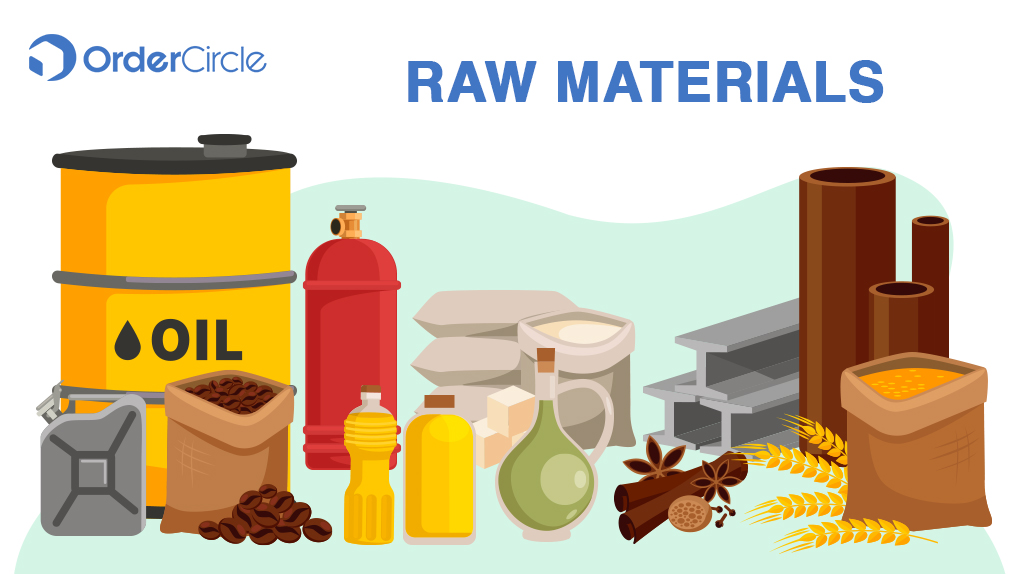Raw materials
Hasan Nasir

Raw materials are primary products from which one makes the final product. Everything we use is made up of a combination of basic materials. These are called its raw materials. They are available in the unprocessed form or semi-processed form. Businesses use these to produce finished products.
We can understand this through various examples. The raw material for paper is wood pulp, for fabric is yarn, and for a car is steel.
From where do we get raw materials?
As the name suggests, raw materials are in raw or minor processed form. We get them mainly from natural resources, viz. plant-based, animal-based, and earth-based resources. Some examples include fruits, vegetables, resin, milk, meat, leather, natural gas, crude oil, etc.
Categories of raw materials
Some materials directly form a part of the final products. Other materials support making the final products but are not a part of it. Thus, based on usage, we can divide raw materials into the following two main categories:
- Direct raw materials: Direct raw materials are those which become part of the final product. For example, flour is a direct raw material for cakes. Also, the fabric is a direct raw material for shirts.
- Indirect raw materials:These raw materials do not become a part of the final products. They, however, support the production process. Examples include glues, tools, fittings, oils, lubricants, etc.
Importance of raw materials in a business:
Things we use daily are made up of some or the other raw materials. Most of these things are manufactured in businesses. Thus, raw materials are crucial for any business.
Let us understand the importance of raw materials in a business.
All businesses need raw materials to deliver products to their customers. Businesses aim to maintain the required quantity of raw materials. With this, they can timely meet the customer demand.
A business keeps its inventory in three forms, of which raw materials are one. The other two forms of inventory are work-in-process and finished goods. Effective inventory management is crucial for any business since it determines profitability and sustainability. The raw material is the first form of a firm’s inventory. It is converted to work-in-process and finished goods. Thus, the management of raw materials is crucial for a business.
The profitability of a business depends on its raw materials. A businessman calculates the cost of the raw materials used against the sales. This gives an idea of the profitability of the business, which in turn is a measure of business growth. Also, a certain quantity of raw materials remains unused during the year. Such raw materials are reflected in the balance sheet as closing inventory. Thus, these make up the assets of a business. They are then used for production in the next year and indicate profitability of that year.
Thus, sourcing the right amount of raw materials and the right cost is crucial for any business.
